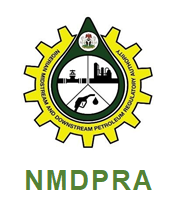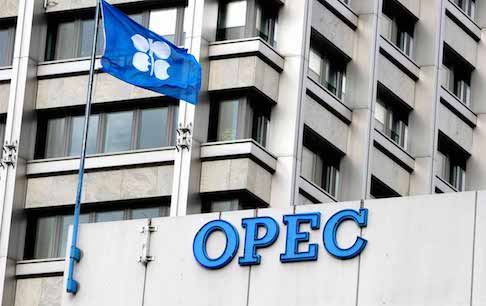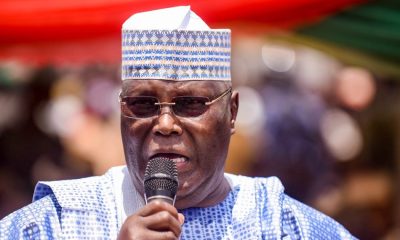Oil & Gas
Dangote’ s Compressed Natural Gas Distribution Project Gulps N720bn

By David Torough, Abuja
Dangote Petroleum Refinery has invested over N720 billion to implement its landmark initiative of deploying 4,000 Compressed Natural Gas (CNG)-powered trucks for the nationwide distribution of petroleum products, which is expected to save Nigerians over N1.
7 trillion annually.This bold step will see the privately-owned refinery absorb over N1.
07 trillion annually in fuel distribution costs. The initiative is also poised to significantly benefit over 42 million Micro, Small and Medium Enterprises (MSMEs) by reducing energy costs and enhancing profitability.The initiative, which eliminates transportation costs for fuel marketers and large-scale consumers, is expected to help reduce pump prices and inflation.
From August 15, Dangote will begin the direct delivery of petrol and diesel to filling stations, industrial facilities and other high-volume consumers.
According to a statement from the refinery, it aims to meet Nigeria’s daily consumption of 65 million litres of refined petroleum products. This includes 45 million litres of Premium Motor Spirit (PMS), 15 million litres of diesel and five million litres of aviation fuel.
With the average logistics cost estimated at N45 per litre, the refinery will cover over N1.07trn annually in free distribution expenses.
Dangote Group is investing N720 billion in the acquisition of 4,000 CNG-powered trucks as well as the establishment of nationwide CNG ‘mother and daughter’ stations, among other infrastructure to implement the free distribution initiative.
This strategic programme forms part of Dangote’s broader commitment to eliminating logistics bottlenecks, enhancing energy efficiency, promoting environmental sustainability and supporting Nigeria’s economic development. The company noted that lower fuel distribution costs will help reduce production costs, ease inflationary pressures and stimulate economic growth.
The initiative is also expected to resuscitate dormant filling stations, fostering job creation in the process.
Over 15,000 direct jobs are projected to be created across the logistics chain, including drivers, station managers, and attendants at the CNG stations.
The refinery also emphasised that this programme would help curb cross-border smuggling of petroleum products and support a more efficient and environmentally friendly distribution system.
The Presidency has described the initiative as a pivotal moment in the Federal Government’s push to mainstream gas-powered transportation.
Commercial Coordinator of the Presidential Compressed Natural Gas Initiative (PCNGI), Tosin Coker, praised the move as a strong vote of confidence in Nigeria’s gas-fueled future.
“Dangote Group’s acquisition of 4,000 CNG trucks is not only impressive in scale but also highly strategic,” he said. “It signals to the market that CNG is no longer a distant prospect but a current, practical solution to high energy costs, emissions, and supply chain challenges. PCNGI regards this as a milestone achievement in our efforts to accelerate gas-powered transport adoption.”
The Independent Petroleum Marketers Association of Nigeria (IPMAN) also commended the development, calling it a timely resolution to longstanding challenges in the downstream sector.
IPMAN’s National Publicity Secretary, Chinedu Ukadike, stated that the new model would significantly reduce logistical burdens for independent marketers by delivering more affordable fuel directly to filling stations.
“Our pipelines have been non-functional for years, yet nothing has been done to revive the infrastructure linking the country’s 21 depots. We’ve had to rely on expensive transport from coastal depots,” Ukadike said. “Dangote’s intervention lifts a huge burden off the shoulders of independent marketers.”
Development Economist and Policy Analyst, Professor Ken Ife, said Dangote’s CNG initiative would drive down the price of PMS and yield widespread benefits for Nigerians.
The CEO of Financial Derivatives Company, Bismarck Rewane, dismissed concerns about the refinery becoming a monopoly, arguing that inefficiencies in the sector have been systemic and long-standing. He added that the scheme would help curb the parasitic role traditionally played by middlemen.
“What Dangote is doing achieves two key objectives: delivering products across the entire country at a uniform price by eliminating bridging costs, and significantly reducing logistics expenses through the use of CNG-powered trucks to reach every corner of the nation.
“In economic terms, middlemen—who typically do not invest—are often viewed as parasitic, extracting margins simply for distributing goods. Dangote is bypassing this layer by directly handling distribution and, notably, providing credit facilities to the retail end of the business,” he said.
Energy expert and co-founder of Dairy Hills, Kelvin Emmanuel, said Dangote’s decision to absorb logistics costs marks a turning point that could finally allow Nigerians to enjoy the benefits of local refining.
Energy analyst Ibukun Phillips described the move as “revolutionary”, suggesting it could reshape Nigeria’s energy sector by improving affordability and access, particularly in rural communities.
“Rural consumers, who typically pay more despite earning less, stand to benefit immensely. This could also revive abandoned filling stations and promote equitable distribution,” she explained.
Oil & Gas
Nigeria Must Act Fast to Drive Electric Vehicle Adoption – MEMAN

Major Energies Marketers Association of Nigeria (MEMAN) has warned that Nigeria cannot afford to be left behind in the global shift to clean mobility, calling for urgent collaboration to fast-track Electric Vehicle (EV) adoption.
Its Executive Secretary, Clement Isong, gave the warning during an online webinar titled “Accelerating Electric Mobility Adoption in Nigeria by Unlocking Downstream Potential” on Monday.
Isong said that the association had already taken practical steps by installing 12 EV charging and battery-swapping stations alongside five aftersales facilities across the country.
“Collaboration among regulators, investors, and private sector stakeholders is critical to building a viable EV ecosystem in Nigeria.
“MEMAN remains committed to fostering dialogue and innovation in the downstream sector,” Isong said.
He said that with transportation accounting for 28 per cent of Nigeria’s greenhouse gas emissions and rising fuel prices burdening households and businesses.
Director of Operations, Nigerian Midstream and Downstream Petroleum Regulatory Authority (NMDPRA), Dr Mukaila Oseni cited the International Energy Agency’s forecast that the number of EVs worldwide will rise to 145 million by 2030.
“Nigeria must diversify its energy mix, lower transportation costs in the long run, and reduce carbon emissions.
“EV adoption is no longer optional. It is essential,” Oseni said.
He, however, admitted challenges remain: high upfront vehicle costs, weak charging infrastructure, unreliable grid power, and low consumer awareness.
Oseni added that NMDPRA had been reviewing regulatory policies to encourage private investment, technology adoption, and innovative business models.
He further urged stakeholders to leverage the nation’s vast fuel retail network as future charging hubs, while also considering interim options such as compressed natural gas (CNG) and liquefied petroleum gas (LPG) as cleaner alternatives.
The webinar, hosted by MEMAN’s Competency Centre, highlighted financing models, local vehicle assembly, and consumer education as critical tools to make EVs accessible and affordable.
With the world moving rapidly towards electrified transport, participants agreed on one point: Nigeria must act decisively to embed EVs in its energy transition strategy or risk being left behind.
| ReplyReply allForwardAdd reaction |
Oil & Gas
Lawyers Integral to Optimal Regulatory Compliance in Oil Business – NMDPRA

The Midstream and Downstream Petroleum Regulatory Authority (NMDPRA) said the role of legal practitioners is critical across the midstream and downstream energy business value chain in the promotion of optimal regulatory compliance.
Chief Executive, NMDPRA, Farouk Ahmed said this on Monday in Abuja at its 2025 General Counsel and Legal Advisers Forum for Midstream and Downstream Petroleum Companies in Nigeria.
The forum has its theme as ‘Advancing a Collaborative Compliance Culture in Nigeria’s Midstream and Downstream Petroleum Sectors’.
Ahmed was represented by Ogbugo Ukoha, Executive Director, Distribution System, Storage and Retailing Infrastructure, NMDPRA.
He said that the sector’s complexity required a unified compliance culture, rooted in robust and enabling legal frameworks, transparency, accountability and shared responsibility.
“The scope of operations of the sector covers hydrocarbon processing, wholesale marketing, transportation, storage, distribution and retail, and its complexity requires more than technical efficiency.
“The role of legal practitioners is critical across the midstream and downstream energy business value chain.
“They help to promote optimal regulatory compliance to set rules and standards of operations in our complex operational and volatile market environment,’’ he said.
Ahmed said that strategic and pragmatic solutions would be established from the forum to enhance performance of the sector towards creation of shared value for investors and the extensive market of Nigeria and the region.
He said that the Petroleum Industry Act (PIA 2021) had fundamentally restructured Nigeria’s petroleum industry by delineating regulatory responsibilities of the industry into the Upstream, midstream and downstream Petroleum operations.
According to him, the Act prescribed that all operations in the midstream and downstream sectors could only be conducted under appropriate licenses, permits and authorisations granted by the NMDPRA.
He said the PIA also mandated NMPDRA to make regulations concerning midstream and downstream petroleum operations in consultation with its licensees and stakeholders.
“As a result of the feedback received from our stakeholders on the need to strengthen regulatory compliance through simplified regulations, NMDPRA is implementing an inclusive stakeholder process of streamlining the gazetted and published regulations.
“This process will mitigate the complexities of navigating and implementing numerous regulations; eliminate inconsistencies and repetitions across multiple regulations; streamline regulatory processes for ease of business; and encourage investments in the industry.
“Kindly use this forum to critically review and make recommendations on the above.
This will enable us to improve the overall compliance of operators and the performance of the regulatory instruments (Legal frameworks and licenses) in the midstream and downstream sectors,” He said.
He said that NMDPRA would continue its commitment to effective stakeholder collaborations that would foster ease of doing business, investor confidence and sustainable operations.
Deputy Speaker, House of Representatives, Benjamin Kalu said that the PIA as a testament to the foresight and dedication of the National Assembly, had fundamentally reshaped Nigeria’s petroleum sector.
Kalu was represented by Ugochinyere Ikenga, Chairman, House Committee on Petroleum Resources, Downstream.
He said that the act had proven how strategic legislation could serve as a potent catalyst for compliance, investment attraction, and robust sector growth.
“For the PIA to remain truly effective, adapting to a dynamic global energy landscape and addressing unforeseen challenges, there must be an institutionalised robust mechanism for its continuous refinement.
“This is precisely where the invaluable insights of our nation’s petroleum experts and our general counsels, the legal architects and navigators of this complex framework, become indispensable.
“For or further synchronisation and effective post-legislative scrutiny, we must actively solicit and integrate your concerns.
“We envision a future where the National Assembly’s specialised committees regularly invite you professionals to public hearings and dedicated technical working groups,” he said.
Kalu said that this proactive engagement would transform abstract legal principles into tangible operational realities, furnishing us with the real-world data and case studies needed to truly understand the PIA’s strengths and weaknesses.
“Your feedback will illuminate where the PIA might be technically challenging, where legal interpretations create bottlenecks, or where new global trends necessitate legislative evolution,’’ he said.
Oil & Gas
OPEC Launches Campaign for Sustained Global Upstream Investment

Torough David, Abuja
The Organization of the Petroleum Exporting Countries (OPEC) has launched a global investment drive seeking attention to creating value in the upstream oil and gas industry.
The Organization is calling for urgent and sustained investment in the global upstream oil sector, warning that a cumulative $14.
9tn will be required between 2025 and 2050 to meet projected demand and prevent a future energy crisis.This investment figure, equivalent to $574bn annually, represents the bulk of the $18.2 trillion in total oil-related investments needed over the 25-year period.
The OPEC had projected that $18.2tn investment would be required to meet global oil demand between 2025 and 2050, as it dismissed the notion of a looming peak in fossil fuel consumption as a “fantasy.
”According to the 2025 World Oil Outlook of OPEC, oil demand is projected to rise from 103.7 million barrels per day in 2024 to 116.5 mb/d by 2045 and peaking at around 123 mb/d by 2050, an 18.6 per cent increase over 26 years.
It also noted the need for continued investments in various segments of the sector to meet this demand.
It noted that of the total investment requirement, upstream operations, including exploration and production, are expected to gulp the lion’s share at $14.9tn, or $574bn per year, as producers scramble to ramp up supply. Midstream and downstream investments will require $1.3tn and $2tn, respectively.
“Cumulative oil-related investment requirements to meet projected demand are assessed at $18.2tn over the period between 2025 and 2050.
“This is marginally higher than projected in the WOO 2024, as despite the outlook period being one year shorter, this Outlook has also seen long-term oil demand revised upwards, and liquids supply has followed.
“Total upstream investment requirements make up the bulk of the needed capital expenditure, now projected at $14.9tn, or $574bn per annum. Downstream and midstream investment requirements are projected at $2tn and $1.3tn, respectively,” the report said.
OPEC Secretary-General, Haitham Al Ghais, said continued investments are essential to guarantee future energy security and affordability, especially in the Global South.
“There is no peak oil demand on the horizon,” Al Ghais declared in the report’s foreword. “Efforts to rapidly phase out fossil fuels are unrealistic and disregard energy security, affordability, and socio-economic realities of billions still lacking basic energy access,” he said.




















